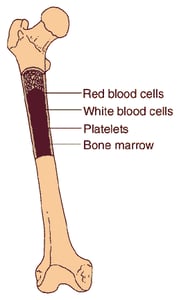Large, multidisciplinary team: When your child has a serious bone marrow condition, it can be overwhelming. You need a team with experience, resources and compassion. Specialists at the MACC Fund Center provide the best possible care for bone marrow disorders.
Nationally recognized: The U.S. News & World Report regularly names us as one of the nation's best pediatric centers for cancer and blood disorders.
Aplastic anemia program: Our aplastic anemia experts know the intricacies of this rare disease. They know that there are multiple ways for a child to improve. That's why we tailor our approach for each patient. We walk through each option to find the best fit for every kid and family.
Decades of expertise: The Bone Marrow Transplant program at Children's Wisconsin started in 1980. Our team has performed more than 1,500 transplants. We are accredited by the Foundation for the Accreditation of Cellular Therapy.
Primary immunodeficiency program: Our team diagnoses and treats complex primary immune deficiencies. Our main goal is the accurate and early detection of disorders. This is critical in cases of serious immunodeficiency. We then provide you and your family with all the latest treatment options.
Offering safer, more effective care options: We use reduced-toxicity conditioning with Treosulfan. This makes transplants safer for kids. Our team works to find the right options for your child.
Integrative medicine: We offer creative arts therapies, acupressure, aromatherapy and massage. This type of care can help ease the side effects and pain of cancer and cancer care.
A national hub for clinical trials: We’re part of major research networks like the Pediatric Transplantation and Cellular Therapy Consortium. We lead and join clinical trials focused on marrow failure and transplant, giving your child access to the latest treatments.





